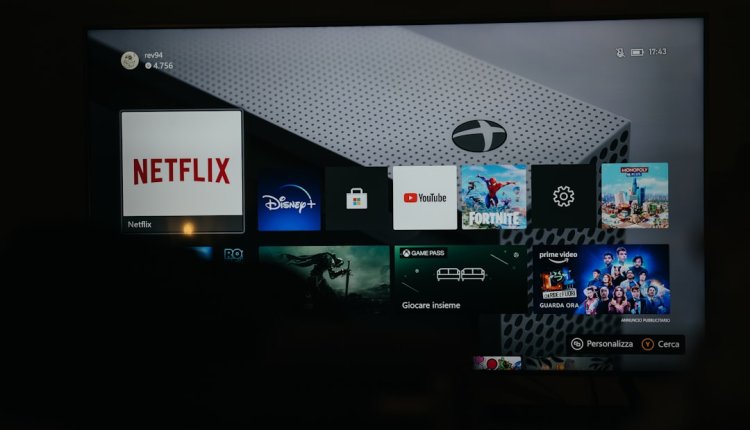Why My Paramount+ Show Got Removed Mid‑Season and the License Expiry Alert System That Would’ve Saved Me
It was a cozy Friday night, and like clockwork, the popcorn was ready, the lights dimmed, and everybody gathered around the TV. This was the household’s long-anticipated ritual — the new episode of *that* show on Paramount+. Only this time, something was off. The title was gone from the “Continue Watching” list. A quick search returned zero results. Confused and alarmed, the loyal viewer frantically Googled only to learn the shocking truth — the show had been removed mid-season without warning. That viewer wasn’t alone.
TL;DR
Paramount+, like many streaming platforms, operates under licensing agreements that can lead to shows being pulled without prior notice. Viewers can be caught off guard, especially when a series is removed mid-season, disrupting their viewing experience. A proactive License Expiry Alert System could notify users of impending removals, allowing time to finish content. Until such a system exists, viewers remain vulnerable to the whims of licensing deals.
What Happened to the Show?
The show in question, let’s call it Crime Streets, was gathering significant traction. Halfway through its intense second season, loyal fans discovered the series vanished from Paramount+ without context or countdown. What viewers didn’t know was that the show’s licensing agreement had quietly expired. Unlike physical media or permanent digital purchases, streaming rights are leased — and leases come with expiration dates. Unfortunately, these legal timeframes are not always communicated to the audience.
This wasn’t an isolated case. From indie dramas to cult-favorite sitcoms, many beloved titles have disappeared from streaming services mid-viewing. The frustration isn’t just emotional — it’s a violation of trust in an age where consumers expect on-demand access as a given.
Why Streaming Platforms Remove Content Mid-Season
Here are the main reasons your favorite shows might vanish unexpectedly:
- Licensing Agreements: Most shows and movies are not owned permanently by the platforms that stream them. These titles are licensed under temporary contracts — sometimes as short as a few months.
- Cost Management: Content libraries cost money. Some shows are not renewed because they’re too expensive or aren’t performing well according to the platform’s metrics.
- Content Rotation: Platforms may rotate content to refresh their catalogs, similar to how TV channels schedule programming.
- Third-party Distribution Deals: Show rights might be sold to another broadcaster or streamer, bringing exclusivity clauses into the mix.
In each of these scenarios, the real losers are invariably the fans — those who invest emotionally, dedicate time, and organize their lives around treasured media content.

The Case for a License Expiry Alert System
All of these issues underscore the need for one vital feature that platforms like Paramount+ are sorely lacking — a License Expiry Alert System (LEAS). Just as some streaming libraries denote a “Leaving Soon” label beside expiring titles, there’s room to take it even further with user personalization.
Imagine getting a notification like:
“You’re currently watching Crime Streets. This title will leave Paramount+ in 7 days. Make sure to finish watching!”
Such a system would restore transparency — enabling viewers to prioritize shows before they vanish and preserving user trust.
Features a License Expiry Alert System Could Include:
- Smart Notifications: Alerts delivered based on your current watchlist or viewing history.
- Countdown Timers: Visual countdowns on the show’s title page, indicating the number of days left.
- Platform-wide Sync: Alerts that work across your devices, whether you’re watching on mobile, tablet, or TV.
- Export or Save Option: If a title is leaving soon, offer purchase or download links (when available) to retain access.
Why This Hasn’t Happened Yet
The streaming industry is still in a relative state of evolution. Each platform is navigating profitability, competing for exclusives, and experimenting with user experiences. Licensing clauses can also involve complicated confidentiality arrangements, making it difficult to announce expiries publicly.
Moreover, viewer identity exists in a fragmented ecosystem: different profiles, varied devices, regional restrictions. Implementing a seamless LEAS would demand considerable backend engineering investment — but the benefits in terms of audience loyalty could be invaluable.

What Viewers Can Do in the Meantime
Until a system like LEAS becomes mainstream, here are a few steps proactive viewers can take:
- Check Licensing Periods: Websites like JustWatch and What’s On Netflix sometimes report on upcoming removals.
- Set Personal Reminders: If a platform denotes a “Leaving Soon” tag, add it to your calendar.
- Download When Possible: If you see a download button available for a title, take advantage before it disappears.
- Watch Prioritized Titles First: Got a multi-season series in your queue? Start with titles you suspect may not stick around long.
The Emotional Toll of Disappearing Shows
For many, watching a series isn’t just casual entertainment — it’s a journey. It’s hours invested in character arcs, storyline twists, and community discourse. When these stories exit the stage without a curtain call, what’s lost isn’t just convenience, it’s connection.
Even mid-tier platforms like Paramount+ must realize: the era of passive content consumption is over. Today’s audience wants more transparency, more control, and yes — more time to say goodbye.
FAQs
- Q: Can I get a refund or compensation if a show is removed mid-season?
- A: Generally, no. Most streaming services include clauses stating content is subject to change without notice. You’re paying for access to the platform, not specific titles.
- Q: Why isn’t there a universal alert system across all streaming platforms?
- A: Each platform has different licensing terms and technological resources. While some may include ‘Leaving Soon’ tags, most avoid publicizing expiration dates due to contractual obligations.
- Q: Is there any third-party tool that tracks expiring content?
- A: Yes, websites like JustWatch and Reelgood often maintain updated lists of what’s coming to or leaving streaming services.
- Q: Will downloading a show keep it after it’s removed from the platform?
- A: Not necessarily. Many downloads expire or become unplayable once the licensing window ends or once the device connects online again.
In the ever-shifting landscape of streaming, one thing is certain — if platforms expect loyalty, they must prioritize transparency. A License Expiry Alert System may just be the bridge between digital convenience and viewer trust. Until it exists, the only real strategy is vigilance.

Comments are closed.